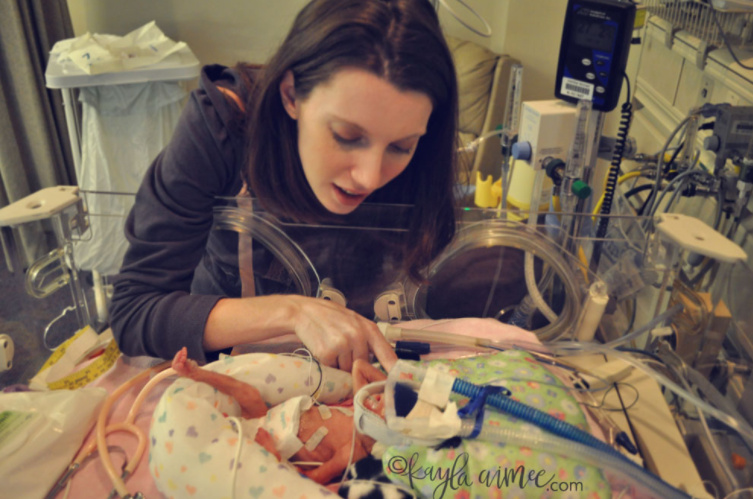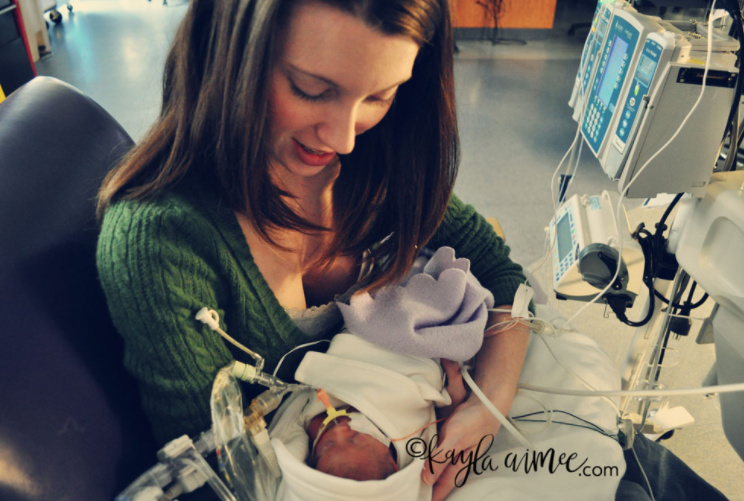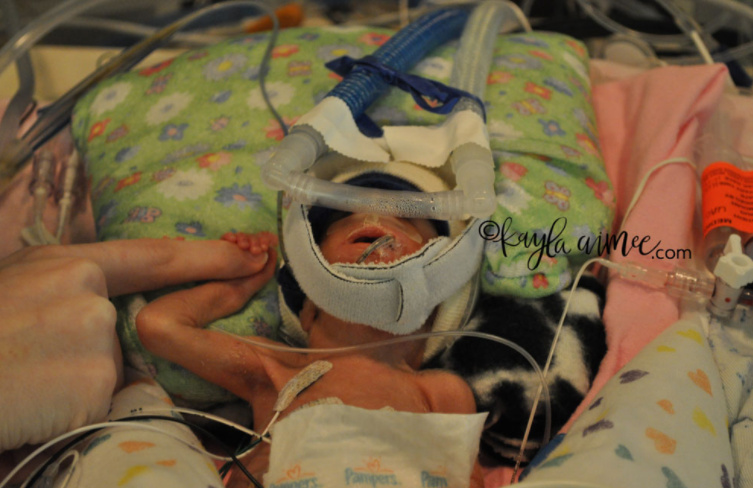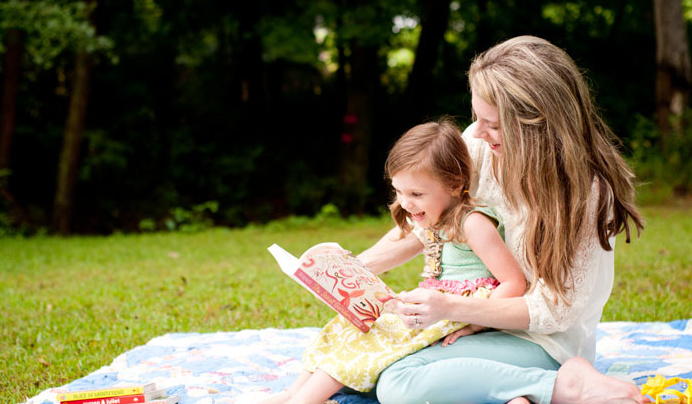You can go into your kitchen, open the refrigerator, remove a few sticks of butter and place them in the palms of your hands.
That’s what it feels like to hold a 1-pound, 8-ounce baby. The equivalent of six small sticks of butter.

You only have a fleeting second of it, when a nurse instructs you to cup your hands inside the isolette just inches from the bed and gently lifts a tiny baby into them as she quickly changes out the bedding. The whole exchange takes place in less than a minute, and she’s gone again, the lid shut, the cover draped and you’re peeking under a corner of it through a thick plastic wall at your daughter, praying.
She will be a month old before you are allowed to hold her.

She’s chasing a little boy and girl at story time, weaving in and out of the shelves of books, her raspy, high-pitched giggle floating across the room.
She is much smaller than them. We are talking, the moms, about ages. Both of their children were born in the month she was due. “February,” they say.
“November,” I reply.
And there they come, the questions. Because she’s so small. Smaller than the 7-month-old who crawls towards us. Smaller than the 1-year-old toddling after them.
I tell her story.
I wave my hand. “But she’s doing wonderfully now.”
I lie in bed later and think of my hands.
Hands that reached for her from an operating table when they cut her from my womb 15 weeks too soon.
Hands that are wrinkled, damaged and dry at 29 from all the sterile scrubbing to place one single finger on my baby.
Hands that trembled as I dialed the number to my husband’s office to tell him 30 days after she was born, they finally, finally let me hold her.
Hands that held a book as I read aloud to her about a little girl and a secret garden over the shaking vibrations of an oscillating ventilator.
Hands that clung to my husband’s as a surgeon took a scalpel to her heart.
Hands that traced the outline of her face on my computer screen in the dead of night as I shook myself awake again to pump.
Hands that wiped tears from my eyes for 156 nights as I walked out of a hospital and left her behind again and again and again.

Hands I balled into fists as I took deep breaths to steady myself and prepared to put a feeding tube down on my own.
Hands that held tightly to her medical team in deepest gratitude as we took her home.
Hands that dropped a dish as apnea monitor alarms rang out to say she wasn’t breathing.
Hands that stretched her body over a ball and willed her to use her fragile, broken bones.
Hands that let her go in the direction of her daddy as she took her first steps.
Hands that grasp her little one in mine and remind her to use her library voice as she puts a finger to her lips and whispers “Shhh!” back at me.
Hands that casually wave when I express how far she has come, how strong she is when asked by an acquaintance at story time.

They get the short version, the one punctuated with numbers and gratitude that fits in the space of the conversation. She was so small, and her story is so big. She was so sick, and her fight was so strong.
I am ever changed.
This is a story with a beautiful ending. We are lucky to be in its cast of characters.
Follow this journey on Kayle Aimee Writes.

